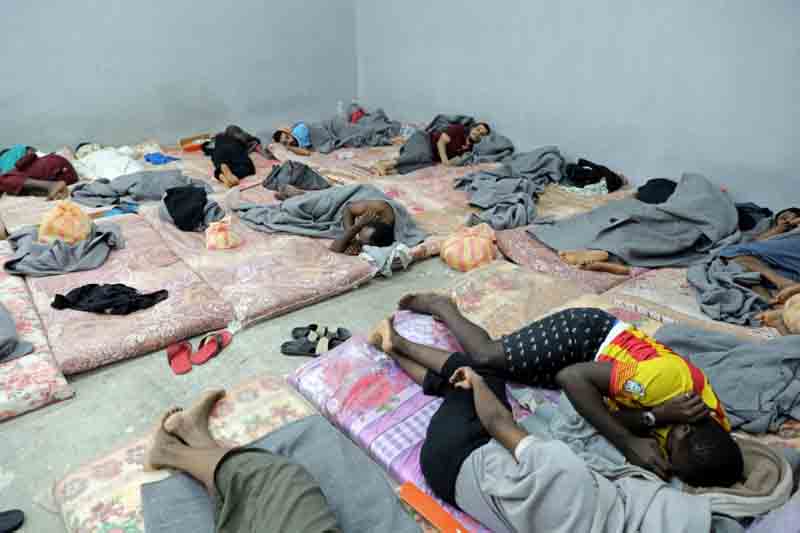By Libya Herald reporter.
Tunis, 10 December 2017:
Ambassadors from 12 European states and the USA together the EU representative to Libya say they are alarmed at continued violence in the country including reports of killings and torture.
“Those suspected of committing, ordering, or failing to prevent such acts on all sides must be fully investigated, and if found guilty, held accountable for their actions,” they declared in a statement marking Human Rights Day today.
The Libyan authorities must publish the results of their investigation into the reports “as soon as possible”, the ambassadors also said.
They represent Austria, Belgium, Bulgaria, Finland, France, Germany, Italy, The Netherlands, Romania, Spain, Sweden, the United Kingdom, the United States and the EU.
Although they paid tribute “to all who promote and strive for the protection and realisation of human rights and fundamental freedoms across Libya, their stressed their concerns about reports of human rights abuses and violations of international humanitarian law across the country
In particular, the reported sale of migrants being sold into slavery amounted to a “heinous” abuse of human rights which, they said, may amount to a crime against humanity”.
“We call upon all relevant authorities to investigate such activities without delay to hold those responsible to account”, their statement read.
In his message marking Human Rights Day, UN special envoy Ghassan Salamé said that abuses were being carried out “at an alarming scale, with no accountability or due process”. Noting that so far this year 365 Libyans including 79 children had been killed or injured as a result of indiscriminate fighting in residential areas, airstrikes or ordinance exploding, he added that UNSMIL had also documented 201 unlawful killings, most of them by armed groups.
“Yet, armed groups continue to illegally detain thousands of people, where torture is systematic and deaths in custody occur on a regular basis,” Salamé said. There had been 24 documented cases “of attacks, arbitrary or unlawful detention, torture and threats against journalists, activists and others,” he said.
He too spoke of the “grave abuses endured by the irregular migrants in Libya; including human trafficking, sexual abuse, forced labor and killings”. He commended “the many Libyans” who opposed this but called on all Libyans to stand up for human rights.
Among the “many”, a group of young Libyan filmmakers were feted on Friday in Tunis at a screening of eight short films made by them on the struggle for human rights in Libya, including the freedom of expression.
The films, whose production owas supported by the EU, were screened in Marseille a month ago, and some are due to be shown in Tripoli and Benghazi and online.
But not all. For personal safety reasons, some of the filmmakers have decided not to show their work in Libya or on the net.








